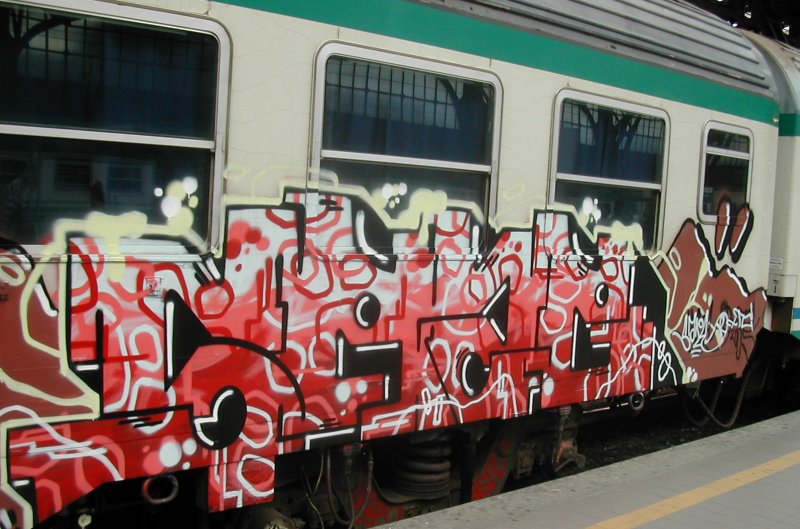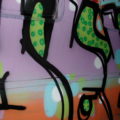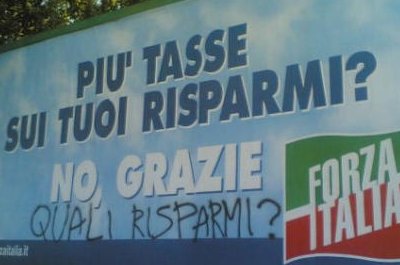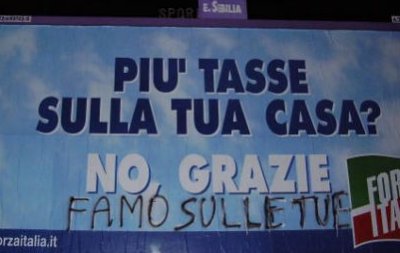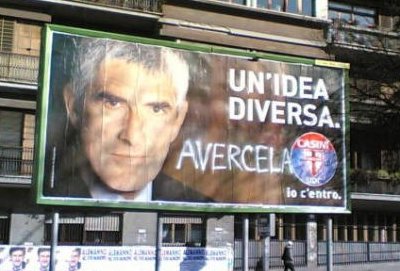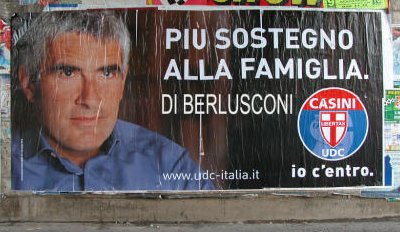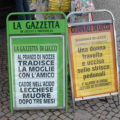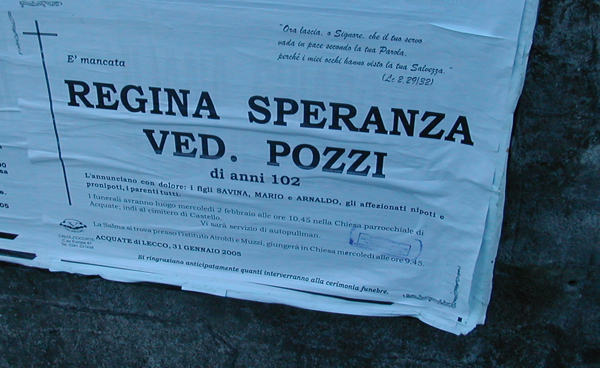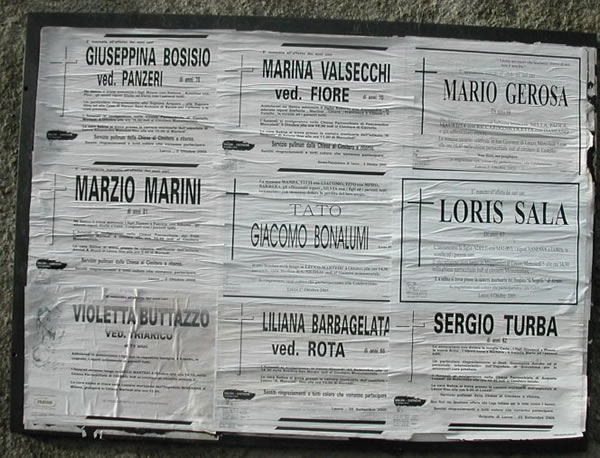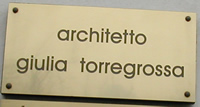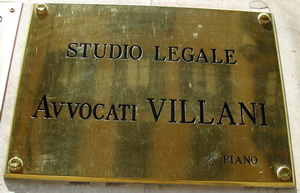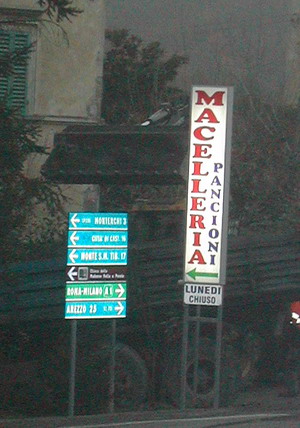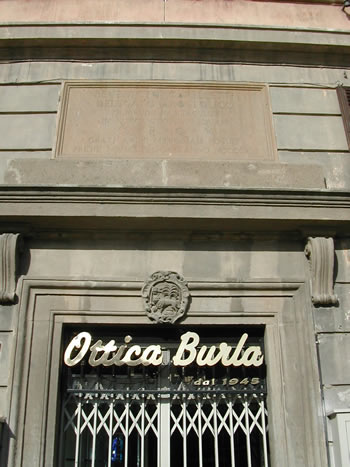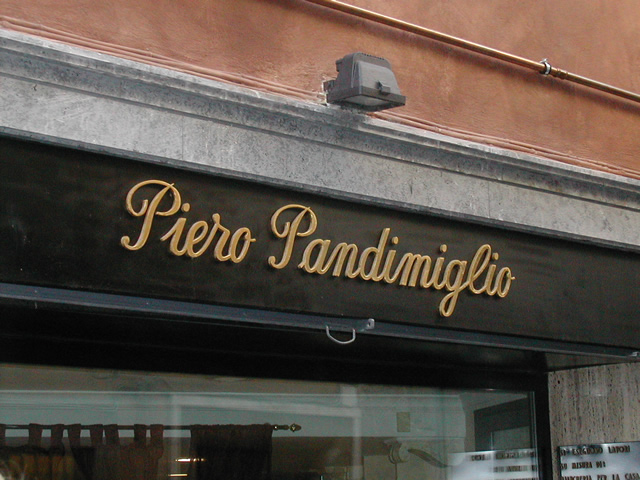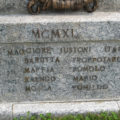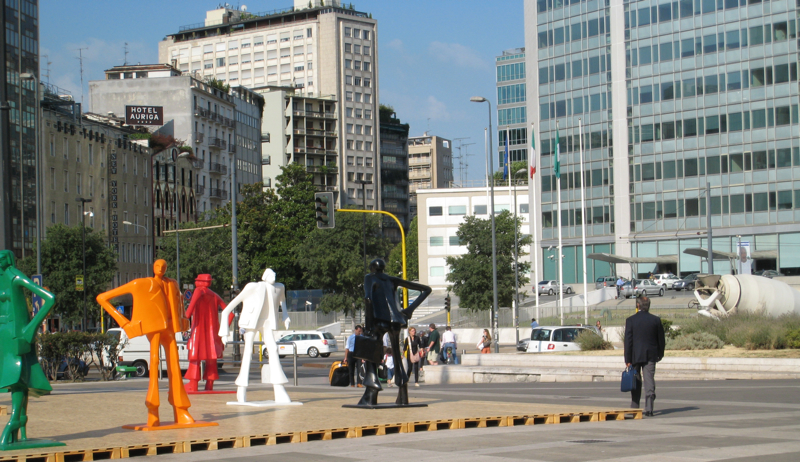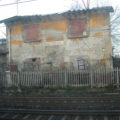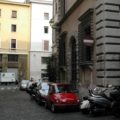I was, unusually, in Milan yesterday (a Saturday), working at my office with Sean Carlos (who’s teaching me cool new website tricks, more on that later). We went out for lunch, and were just getting ready to leave the restaurant when three young guys came in, whom we noticed particularly because one had hair in dreadlocks down to his waist, the second had a nearly shaved head, while the third was normal-looking, at least as far as haircut goes. They asked the restaurant owner for plastic bags, apparently to carry their jackets and motorcycle helmets in. His attitude towards them was puzzling; all I could think was that he disliked being asked for bags when they hadn’t even bought anything.
We walked a couple of blocks to my usual coffee bar, where everybody seemed completely freaked out, looking out the windows nervously. The barista explained that there had been some kind of demonstration on Corso Buenos Aires, the big shopping street a few blocks away, and something had gone wrong – gunshots had been heard, and there were police helicopters hovering over the neighborhood.
When we went to take the metro to our respective destinations later that afternoon, there was an announcement that the trains were not stopping at the Porta Venezia and Palestro stations “for public security reasons.”
The evening news was full of it. A (legally-organized) parade was planned by the “Fiamma Tricolore” (Tricolor Flame), a neo-Fascist organization. This was considered by the extreme leftists to be a deliberate provocation, and may well have been, given that the Fiamma guys had to be forcibly dissuaded by the police from marching under banners with swastikas and other Fascist symbols – which are illegal to display in Italy. So the lefties organized an illegal (because no permission was applied for) counter-demonstration, which, although it took place hours before the Fiamme arrived, quickly turned to violent chaos. They torched cars and shops, and set off nailbombs and firebombs. The photos are horrific, considering that this is, for heaven’s sake, Milan!
The good citizens of Milan, in fact, were so angry that some demonstrators had to be rescued by the police to prevent them being lynched by local residents. Almost 50 demonstrators were arrested, and nine police injured, though thankfully none seriously.
I guess that, because no one got killed, it isn’t news – I can only find one reference in the press anywhere in the world outside of Italy, and that was in New Zealand – at least our friends in the Antipodes are paying attention.
It seems to be an Italian cultural trait to leap immediately to conspiracy theories, but in this case they may be right. We’re in the midst of a closely-fought and increasingly acrimonious election, in which it’s hard to tell which side is being more stupid. It is entirely possible that someone on the right hired provocateurs to ensure that the counter-demonstration got out of hand. It’s equally possible that the extreme leftists are stupid enough to do that on their own, without considering that they are losing votes for the left and playing into the hands of the right (with friends like these…).
The comedy of errors rolls on. After much discussion, Berlusconi and Prodi (the leader of the loose and fractious coalition of the left) finally agreed terms for an American-style TV debate, which will take place on Tuesday night (our beloved Montalbano got moved to Monday, otherwise the public would have faced a truly difficult choice).
Now that we are officially in campaign season, the rules on par condicio (equal access to the media) have set in, so Berlusconi’s access is theoretically limited. Today he wasted ten minutes of a 30-minute interview with TV journalist Lucia Annunziata, walking off the set because he didn’t like her questions. When he kept evading a straight answer, and she kept insisting on one, he said: “You are violent, you should be ashamed of yourself.” “You don’t know how to talk with journalists,” she snapped back.
Let’s see, what else… one minister in Berlusconi’s cabinet left office a couple of weeks ago after wearing on TV a t-shirt printed with some of the famously offensive Mohammed cartoons, provoking riots in Libya in which some demonstrators were killed by the police. This ex-minister may face charges under Article 404.
Then a few days ago the minister for health found himself under investigation for Watergate-like spying on political rivals. He proclaims his innocence, but has resigned so as not to further tarnish his party.
We await developments to see what the next damn silly gaffe from either side may be. Hopefully no more violent demonstrations, but at this point I fear that anything is possible.

